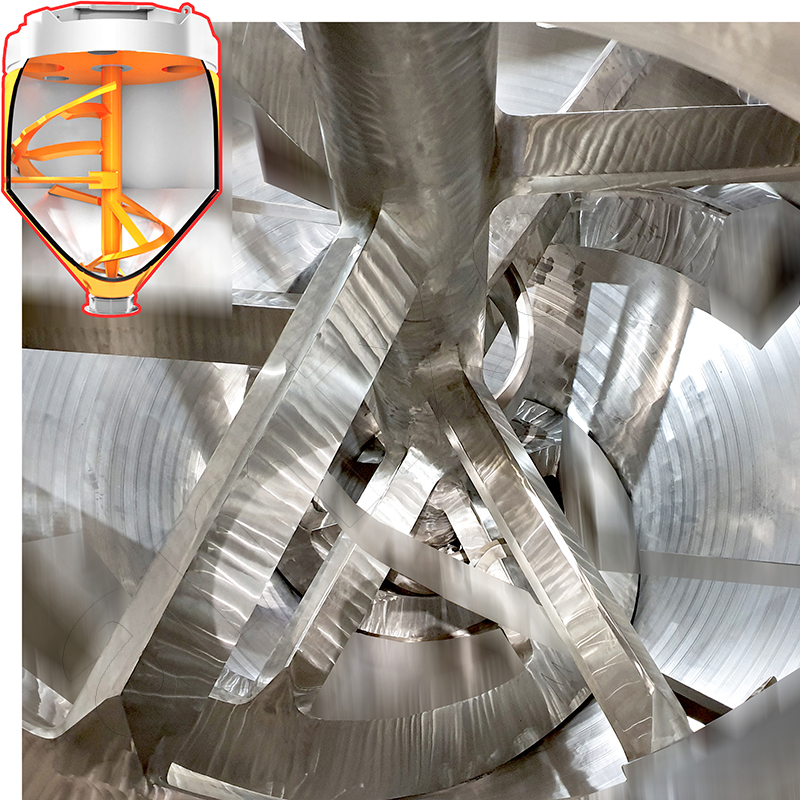
metal soaps
Metal soaps are salts of higher fatty acids with metals such as calcium, magnesium, zinc or aluminium.
They are produced by neutralising fatty acids, usually stearic acid or palmitic acid, with metal oxides or hydroxides. The result is a fine, waxy powder that is insoluble in water but easily dispersible in organic media. Due to their lamellar structure, metal soaps act as lubricants, sliding agents and release agents. In plastics processing, they serve as stabilisers and internal lubricants, while in pharmaceutical and food technology, they improve the flowability of powders and prevent caking. In metalworking, they form stable lubricating films during deep drawing, pressing or calibrating. Their chemical stability and good dosability make them versatile additives in powder mixtures, granulates and pastes.
The chemical conversion for the production of metal soaps can be carried out particularly efficiently in amixon® reactors. These devices have large specific heat exchanger surfaces, which enable precise temperature control during the reaction. At the same time, they can handle all material consistencies – from liquid and highly viscous to pasty or powdery. This allows reaction, mixing and drying steps to be combined in a single apparatus, which significantly improves process reliability and product quality.
